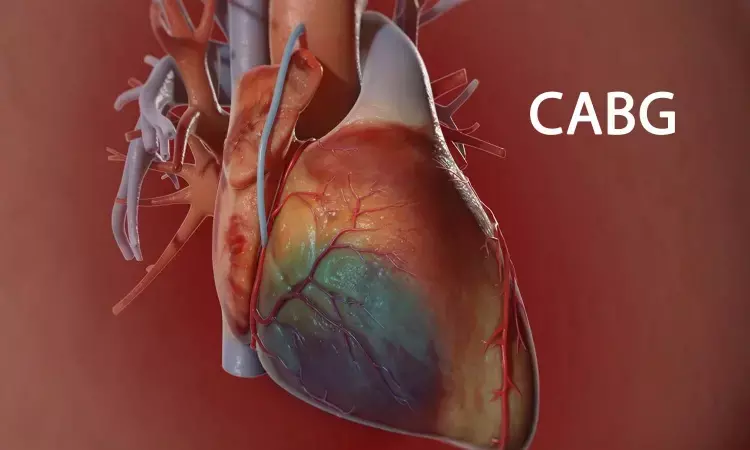- Home
- Medical news & Guidelines
- Anesthesiology
- Cardiology and CTVS
- Critical Care
- Dentistry
- Dermatology
- Diabetes and Endocrinology
- ENT
- Gastroenterology
- Medicine
- Nephrology
- Neurology
- Obstretics-Gynaecology
- Oncology
- Ophthalmology
- Orthopaedics
- Pediatrics-Neonatology
- Psychiatry
- Pulmonology
- Radiology
- Surgery
- Urology
- Laboratory Medicine
- Diet
- Nursing
- Paramedical
- Physiotherapy
- Health news
- Fact Check
- Bone Health Fact Check
- Brain Health Fact Check
- Cancer Related Fact Check
- Child Care Fact Check
- Dental and oral health fact check
- Diabetes and metabolic health fact check
- Diet and Nutrition Fact Check
- Eye and ENT Care Fact Check
- Fitness fact check
- Gut health fact check
- Heart health fact check
- Kidney health fact check
- Medical education fact check
- Men's health fact check
- Respiratory fact check
- Skin and hair care fact check
- Vaccine and Immunization fact check
- Women's health fact check
- AYUSH
- State News
- Andaman and Nicobar Islands
- Andhra Pradesh
- Arunachal Pradesh
- Assam
- Bihar
- Chandigarh
- Chattisgarh
- Dadra and Nagar Haveli
- Daman and Diu
- Delhi
- Goa
- Gujarat
- Haryana
- Himachal Pradesh
- Jammu & Kashmir
- Jharkhand
- Karnataka
- Kerala
- Ladakh
- Lakshadweep
- Madhya Pradesh
- Maharashtra
- Manipur
- Meghalaya
- Mizoram
- Nagaland
- Odisha
- Puducherry
- Punjab
- Rajasthan
- Sikkim
- Tamil Nadu
- Telangana
- Tripura
- Uttar Pradesh
- Uttrakhand
- West Bengal
- Medical Education
- Industry
CABG better than PCI for improving long-term survival in ischemic HF patients: Study

Sweden: Revacularization with CABG in patients with heart failure (HF) due to ischemic heart disease is associated with greater long-term survival than those treated with PCI, show results from a large, retrospective registry-based study. In patients with ischaemic heart failure, long-term survival was greater after CABG than after PCI.
According to the study, published in the European Heart Journal, the benefit with CABG was notable in the long-term after 4 years of follow-up and was associated with a mean event-free survival of 0.59 years more than PCI.
The most common cause of heart failure is ischemic heart disease that accounts for approx two-thirds of all HF cases. Routine revascularization versus optimal medical therapy (OMT) alone provides superior outcomes. Current European and American guidelines recommend an invasive approach in addition to OMT in patients with multivessel disease (MVD) and reduced left ventricular ejection fraction (LVEF).
Randomized controlled trials have shown greater long-term survival with coronary artery bypass grafting (CABG) than with OMT alone. However in patients with HF and concomitant MVD, the effects of percutaneous coronary intervention (PCI) has not been evaluated in a randomized setting.
Against the above background, Elmir Omerovic, University of Gothenburg, Gothenburg, Sweden, and colleagues aimed to compare coronary artery bypass grafting and percutaneous coronary intervention for treatment of patients with heart failure due to ischaemic heart disease.
For this purpose, the researchers analyzed all-cause mortality after CABG or PCI in patients with heart failure with reduced ejection fraction and multivessel disease (coronary artery stenosis >50% in ≥2 vessels or left main) who underwent coronary angiography between 2000 and 2018 in Sweden.
In total, 2509 patients (82.9% men) were included; 35.8% had diabetes and 34.7% had a previous myocardial infarction. The mean age was 68.1 ± 9.4 years (47.8% were >70 years old), and 64.9% had three-vessel or left main disease. Primary designated therapy was PCI in 56.2% and CABG in 43.8%. Median follow-up time was 3.9 years (range 1 day to 10 years).
The researchers found the following:
- There were 1010 deaths.
- Risk of death was lower after CABG than after PCI [odds ratio (OR) 0.62].
- The risk of death increased linearly with quintiles of hospitals in which PCI was the preferred method for revascularization (OR 1.27).
"Our findings showed that in patients with ischaemic heart failure, long-term survival was greater after CABG than after PCI," wrote the authors.
"Our study supports the current European and American guidelines for revascularization of patients with HF due to ischaemic heart disease," they concluded. "There is a need for a randomized trial to resolve the question of which revascularization method should be the treatment of choice for patients with ischaemic HF."
Reference:
The study titled, "Long-term mortality in patients with ischaemic heart failure revascularized with coronary artery bypass grafting or percutaneous coronary intervention: insights from the Swedish Coronary Angiography and Angioplasty Registry (SCAAR)," is published in the European Heart Journal.
DOI: https://academic.oup.com/eurheartj/article/42/27/2657/6282431#271115780
Dr Kamal Kant Kohli-MBBS, DTCD- a chest specialist with more than 30 years of practice and a flair for writing clinical articles, Dr Kamal Kant Kohli joined Medical Dialogues as a Chief Editor of Medical News. Besides writing articles, as an editor, he proofreads and verifies all the medical content published on Medical Dialogues including those coming from journals, studies,medical conferences,guidelines etc. Email: drkohli@medicaldialogues.in. Contact no. 011-43720751


